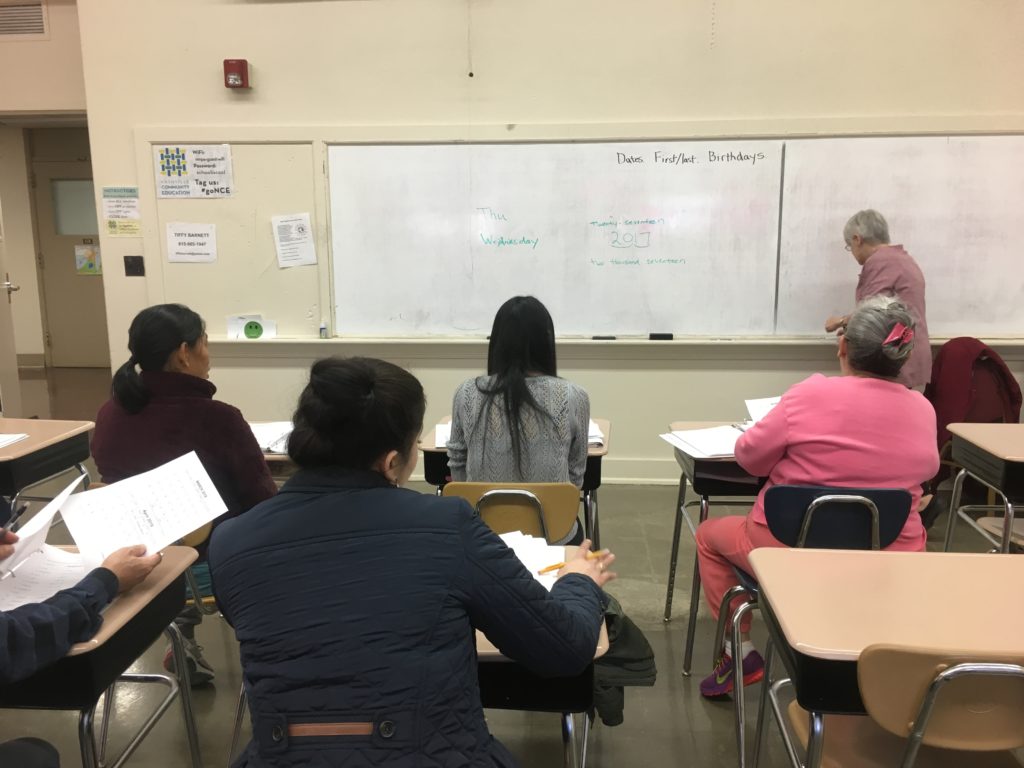
For some Nashvillians, banal tasks like filing paperwork or reading a prescription are major obstacles to their daily lives.
Adult illiteracy affects one in eight in the city, according to the Nashville Adult Literacy Council, and the problem goes beyond native citizens who didn’t learn during childhood. The NALC says it hits hardest among Nashville’s growing immigrant and refugee populations.
“Literacy is the foundation for a better life,” says Kim Karesh, CEO of the NALC. “It can be about reading a book to a child and being able to support them in school. It can be improving your ability to work and get a better job.”
The number of foreign-born Nashvillians has more than doubled over a decade, according to the
mayor’s office — with immigrants making up
12.5 percent of the city’s population.
Likewise, the people who attend NALC classes have been shifting from native English speakers to English Language Learners, or ELLs. When the council first formed in 1982, it served just a handful of adult learners — all of them U.S.-born citizens.
This past year, the NALC helped about 1,500 functionally illiterate adults, and the vast majority were immigrants.
Students from Egypt, Mexico and Central America fill 35 percent of the seats at the NALC classes. The organization also serves students from East Asia, sub-Saharan Africa and the countries of the Persian Gulf. US-born students make up only about 15 percent of the student body.
Karesh says the education level of her students ranges widely: Some were illiterate in their native languages, while others were doctors in their home countries. The NALC offers group literacy classes and one-on-one tutoring, as well as help with paperwork and the civics test when applying for citizenship. During the tutoring sessions, students often bring important documents such as school enrollment forms and driver’s license applications.
The demand for literacy support often overwhelms the available help.
No Need To Advertise
The NALC, like other ELL centers in Nashville, is strapped for resources. The NALC doesn’t advertise because their waiting list is so overcrowded.
Karesh says literacy isn’t an issue limited to an individual or a single family. Literacy affects everyone in the community, specifically children above all.
“If you are a child born to illiterate adults, you have a 72 percent likelihood that you will also score the lowest reading levels yourself,” says Karesh. “If we’re going to improve the outcomes of our children, we have to improve the outcomes of our adults.”
Izzat Cholo is one of the program’s top students. He immigrated with his wife and children in 2014 to escape violence in their home country, Iraq. He bounced around Florida and Texas, before eventually settling in Nashville because he had Iraqi friends living in the city.
They were a help at first, but he came to rely too much on their English skills for day-to-day tasks.
“It’s hard to call your friend, everyday to call them, ‘Hey I need to go to the grocery story, I need to do this.'”
He struggled especially hard with the driver’s license written exam. He failed on his first attempt. Cholo said his test-taking strategy was to fill in answers randomly.
Cholo was motivated to improve his language skills to become more self-reliant and has worked to achieve literacy at an advanced level.
He had picked up some English before immigrating, while working on a U.S. military base in Mosul. But at the NALC, most other students enter the program with little-to-no prior knowledge of English.
Many obstacles — academic, emotional and financial — block the path towards proficiency. ELL classes require a stalwart tenacity to succeed in the face of frustration, alienation and moments of shame. Often, the goal of becoming literate falls to the wayside when other, more pressing needs get in the way.
Absences are common at the NALC. Some class meetings have a turnout of less than half of the students.
“It’s easy for you and I to sit here and say, ‘Well literacy is fundamental, you have to have it,’ but I can tell you that when you don’t have enough food on the table or you haven’t secured your shelter over your head, literacy is a luxury,” said Karesh.
When these obstacles are overcome, literacy resources can be life-changing. Cholo has applied for a home loan that has been approved. He was also accepted to Nashville State with plans to enroll within the next two years.
His family’s dream is to open a fast food restaurant franchise, perhaps a Subway sandwich shop.


